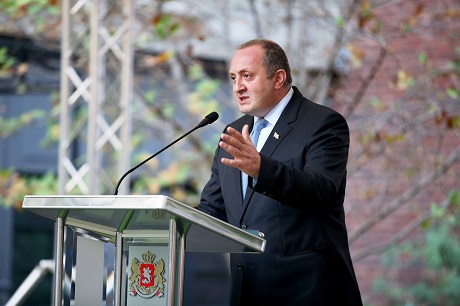President approves bill outlining new rules for selecting Chief Prosecutor

The President of Georgia Giorgi Margvelashvili has signed a bill sent by Parliament that outlined the reform of the Chief Prosecutor’s Office of Georgia.
The President’s Parliamentary Secretary Giorgi Kverenchkhiladze stressed the amendments to Prosecution Law only focused on the appointment and dismissal procedures of the Chief Prosecutor.
The bill is not enough to make the agency absolutely resistant to political interventions. The Prosecutor’s Office requires systemic changes we hope to launch shortly,” Kverenchkhiladze said.
He noted President Margvelashvili believed a comprehensive reform of the Chief Prosecutor’s Office would define the statues of the agency, among other state institutions, and encourage its role as a single, unbiased entity.
On September 18 Georgia’s Parliament passed the Bill at its final reading that introduced new, more complex rules of how to select and elect a Chief Prosecutor for a non-renewable six-year term.
The bill outlined creation of a 15-member Prosecutorial Council, chaired by the Minister of Justice.
Eight members of the Council will be prosecutors elected by the Conference of Prosecutors, which was also a new structure suggested in the bill.
Members of Parliament (MPs) will take two seats; one from the majority and one from the opposition, while one seat will be held by a civil society representative and another from an academic.
Two seats would also be held by judges of the High Council of Justice.
For the final position, the new procedures stated the Justice Minister would select three candidates and then present them to the Prosecutorial Council for approval. The Council must approve one candidate by voting; the successful nominee must gain two thirds of support.
If this failed, the Justice Minister will be required to name three other candidates. However, if selected, the chosen candidate will go before the Government for approval.
If the candidate is disliked, the process of selecting nominees will begin again. If endorsed, the candidate must be approved by Parliament. Parliament should confirm the can
 Tweet
Tweet  Share
Share